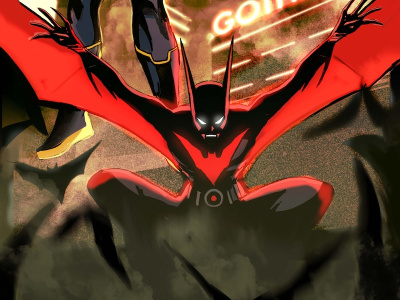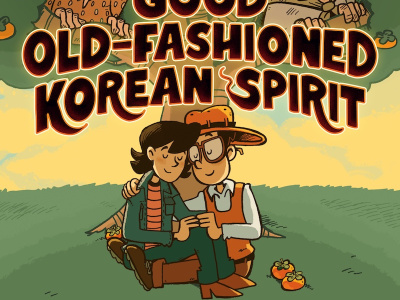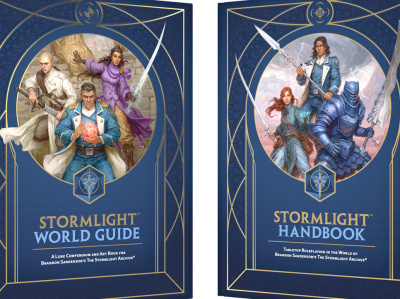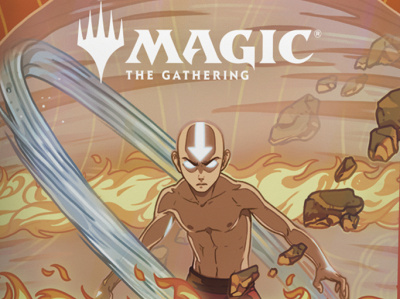We talked to Wendy and Richard Pini, creators of Elfquest, at C2E2. The Pinis are on their year-long "Forty Years of Pointed Ears" tour, which is taking them to a full schedule of conventions this year. The occasion is the completion of their work on Elfquest comics, which they wrapped up with the publication on February 28 of The Final Quest #24, exactly 40 years after the release of Fantasy Quarterly on February 28, 1978. During that 40-year period, nearly everything about how comics are created, published, and sold has changed. Elfquest, which at the time it was first published was revolutionary in content, publishing model, and distribution, was a big part of those changes so we wanted to find out what the Pinis thought about the changes in the business over that time and where it is now.
When you started, there were hardly any comic stores. There were maybe a couple hundred in the whole country, if that. What's your evaluation of the changes since then, and the current status of the comic store?
Richard Pini: Oh heavens. I remember back to when you're talking about, when there were just a couple hundred. I remember finding Fantasy Quarterly #1 [first appearance of Elfquest] in head shops. That was an outlet for comics as much as anything else.
With the rise of the direct market, we grew to 10,000 at the peak; there were 10,000 stores. Then there was the bust. Then there was another boom. Then there was another bust. It feels like the state of the comics direct market is not nearly as robust as it was. It's healthy, but it's niche.
Wendy Pini: What I've noticed is they're not as willing to take chances on ordering multiple copies of things. They're very, very careful. They might order only one or two of any given title. That doesn't enable a whole bunch of fans to find out about something if they just sell out those two and don't order any more. It has an effect I think on certain titles.
Richard: I think it has an effect across the industry, the necessary caution. I can remember back when, "Oh, I think we'll sell 5 copies, so I'll order 10. We'll have the others for back stock. They will sell in a little while."
Wendy: But they don't keep back stock anymore.
The books have changed that, too, the collections.
Richard: Yes, in fact, we've noticed that with our own series. We just wrapped up Final Quest, issue 24 came out. Dark Horse has been collecting every six issues. But we hear from a number of our fans who say, "I'm not going to buy the floppies. I'm going to buy it when the books come out." We try to insert a little bit of logic that says, "You know if you don't buy the floppies, that's week to week, month to month income for the publisher, he might not be able to put the damn collection out." But it is what it is.
When you started out, you mentioned that you were finding your comics in head shops. In some ways, it seems the distribution was wider then because distributors were putting your title in record stores and head shops, food coops, and on the more mass side, in airports. Now, it's either comic stores or bookstores or Amazon. Is that a good thing or a bad thing? Those channels are much more powerful and bigger, but they seem in some ways to reach a narrower audience.
Richard: I personally mourn the events that caused the direct market to implode by two‑thirds back in the mid‑90s. I'm very happy that outlets like Amazon are there because it's very low‑hanging fruit. It's easy to do.
But by the same token, once upon a time, cities had three, four, five, six comic shops. They were all different. They all coexisted. They all were just different enough so that if you went to shop A, shop B didn't feel the loss of your patronage.
Now what we hear is, "I can't get to a comic shop." I think a lot of people would love to be able to get to a comic shop because it's a nucleus. It's a place for gathering. You can't gather at Amazon. You can gather on Facebook. But what's that? That's not the same.
I wish we still had 10,000 shops because I think 10,000 shops could still do quite well even with Amazon, even with whatever else there is.
You were some of the first self‑publishers. That allowed you to control your rights, which is different than a lot of people ended up. How do you feel about the current status of creator rights and the changes that have happened in the last 40 years?
Richard: We have never let go of our rights. I suppose in one sense we were lucky. You know that we took Elfquest to Marvel and DC before Fantasy Quarterly came out because I didn't want to be a publisher, because I didn't know a thing about it. They said, "No, it's too weird."
By default, we became Warp Graphics. We became the publisher. We kept the rights. I don't know if Marvel or DC would have wanted the rights to the IP back then. We've had the rights to Elfquest ever since.
I know in the 70s there was a big push for not creator rights, but more royalties for the creative people. Then in the 80s, there was a big push for creator rights that I think continues to this day. There are so many more outlets for creator‑owned properties now: you’ve got the web, anybody can be a creator. Anybody can control their rights.
Wendy: But monetizing it is the trick if you're on the web.
Richard: Monetizing it is the trick no matter what you're doing these days.
Wendy: I have felt very sorry for creators over the years who have lost their properties because they didn't protect themselves enough legally. They weren't willing to invest in good, proper legal advice. They just thought they could be their own lawyers. They ended up losing everything. I feel terrible about that.
Do you feel like it's easier or harder for a creator now than it was when you started out?
Richard: Both. Back when we started, of course it was all print. There was no Internet. There was nothing like that. The field was wide open. There were not very many stores. But there weren't any or very many independent, ground‑level titles either.
Elfquest was part of a group. There was you and Star Reach, and Hot Stuff maybe was in that group, all late 70s.
Richard: Cerebus was there and First Kingdom was there.
And the undergrounds.
Wendy: That was about it.
Richard: And the undergrounds. There was Marvel, DC, and Archie for above ground if you want to use the phrase. There were the undergrounds who'd been around since the 60s. Then, there were half a dozen of us. We were all something brand new. Readers went, "Whoa, what's this?" They really did that with Elfquest. We were very lucky that way.
Now of course, you've got the big however many, big two or three or four. It's very corporate. It's very IP‑driven and franchise‑driven. But then, you've got the wild, wild web. It's easier in that anybody can launch a comic. It's much more difficult to make a living at it.
Wendy: Yes, you can always get your first comic off the ground by launching it on the web. Getting your second one out is the trick.
Richard: Because the memory of the Internet is infinitesimal. If you don't have something every so often, every week, at least every month, you're going to get forgotten.
We talked about undergrounds, ground level, above ground comics. Now, it seems like except for the really extreme underground, all that has merged; the ground level comics paved the way for adult genre comics. How do you see that as having changed over the last 40 years?
Wendy: We did Elfquest for ourselves. We did the kind of story that would please us. That meant that we wanted to tackle more mature subject matter but still be family‑friendly. We've found a pretty exquisite balance that enabled adults to get involved with Elfquest and teenagers. Then the older ones would introduce the younger ones to it.
It's always been a generational thing. Younger kids get one thing out of Elfquest, maybe the fantasy and the adventure. Older kids and adults will get the more subtle meanings that we put into the writing and the telling of the story.
That's the way we've handled it for four decades. It's a story you can read on different levels. I think we showed a number of other people who had independent properties of their own how to do that trick.
Richard: Personally, I don't like the term family‑friendly because it's been co-opted lately to mean something that it didn't start out meaning. But we always wanted to speak some truth if not to power then to culture. Nowadays, pop culture changes so quickly that what might be considered family‑friendly 10 years ago is not today or it's passé today or whatever.
We just kept on telling the story about characters that were very real to us and still are. Our audience consists of people for whom those characters resonate. The Elfquest characters are outsiders. They're the marginalized. They're the other.
Look around the world, especially the last couple of years. There are all kinds of pushed-aside, marginalized groups. They find something of value in Elfquest. We're pleased to be able to provide that.
Wendy: People have asked us, "How do you make a comic book series last for 40 years?" I firmly believe that one of the things that has made Elfquest last is consistency. The audience actually loves continuity. They will stay with your story no matter how long your story is if your continuity is solid.
It's like the women who follow soap operas on TV that have been running for 40 and 50 years. They follow the continuity. As long as it makes sense, they'll stay with it.
Any other thoughts or reflections on how the business has changed over the last 40 years or anything you want to communicate to our readers?
Wendy: I'm delighted that the subject matter is so varied now and that so many women are bringing their own ideas and independent properties and taking a shot at getting them started. The women's point of view, what they want to speak about, and what they want to tell stories about is very exciting, very different. It's not just big muscular guys beating the snot out each other.
Richard: I would close with the iconic quote from Field of Dreams, "If you build it, they will come." The comic shops that we've been to, the ones that have survived, have survived because they have become friendly, not just family‑friendly, not just woman‑friendly, not just kid‑friendly, but just friendly all around. They're nice places to go to.
Those are always going to be attractive to new customers. Word of mouth still works in this Internet age. If you build such a place, if you create such a space, people are going to come in there. You will survive. We will be happy to go there.
Click Gallery below for a few pictures from 40 years of Elfquest history!
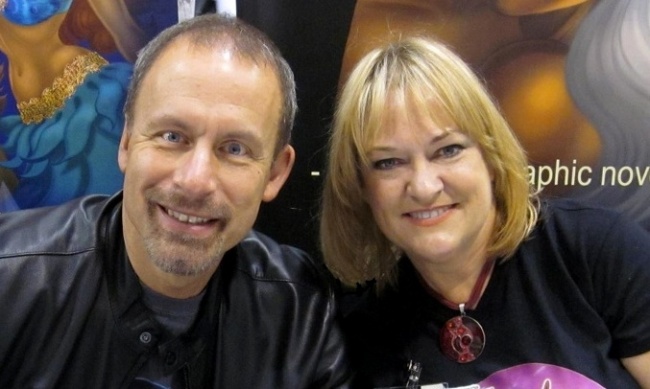
Forty Years of Changes in the Comics Business
Posted by ICv2 on April 16, 2018 @ 2:50 am CT
MORE COMICS
Pairing Neo-Gotham's Batman with Dakota City's Static
August 13, 2025
The series teams up Terry McGinnis, the Batman of Neo-Gotham, and Virgil Hawkins, Milestone’s Static.
New Graphic Novel by Creators of 'Banned Book Club'
August 13, 2025
Kim Hyun Sook and Ryan Estrada, creators of the Eisner-nominated Banned Book Club, are back with a lighter take on rebellious teens, meddling elders, and Korean traditions.
MORE NEWS
For 'Cosmere Roleplaying Game'
August 13, 2025
Brotherwise Games will be launching the Cosmere Roleplaying Game: Stormlight series.
New Set Features Lots of Allies and Humans
August 13, 2025
Wizards of the Coast revealed details on Magic: The Gathering - Avatar: The Last Airbender .



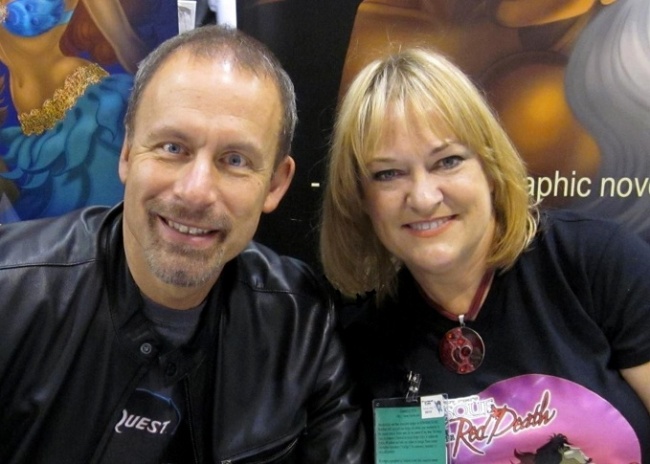
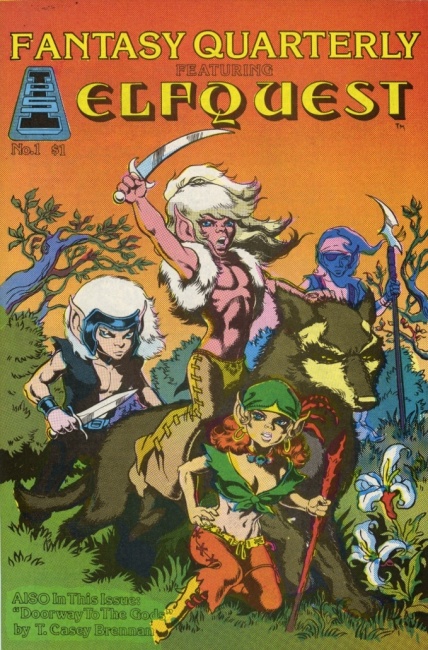
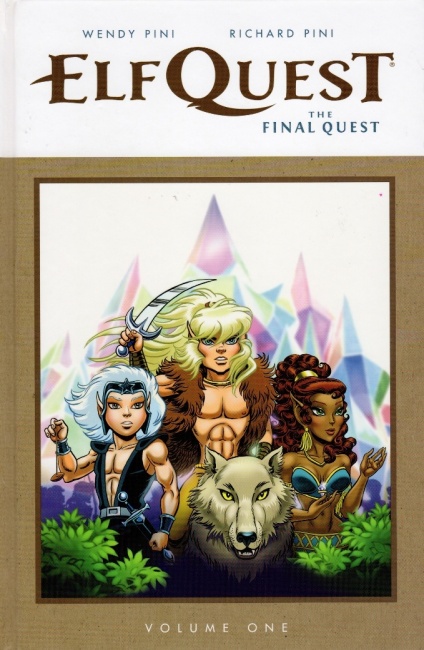
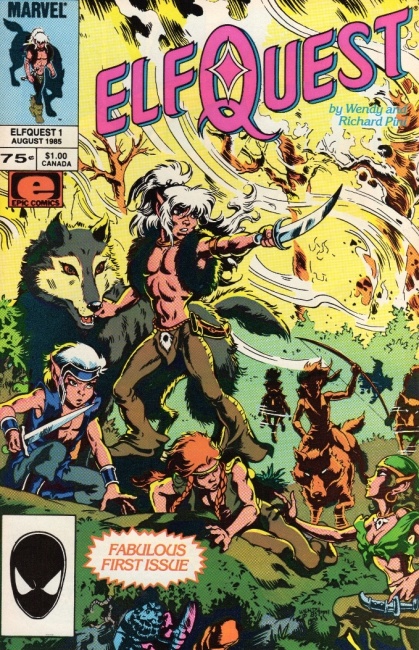
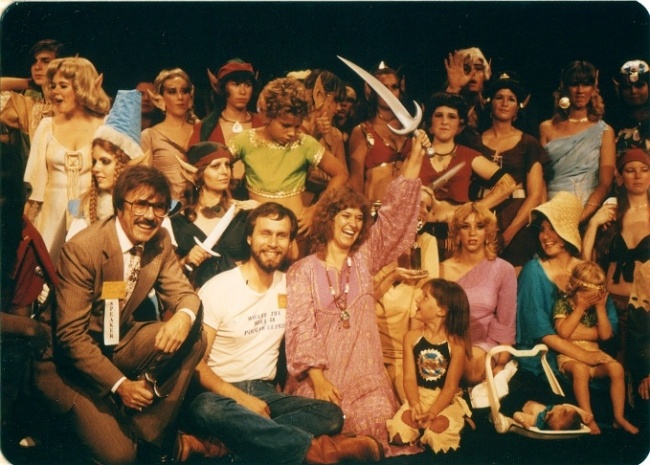
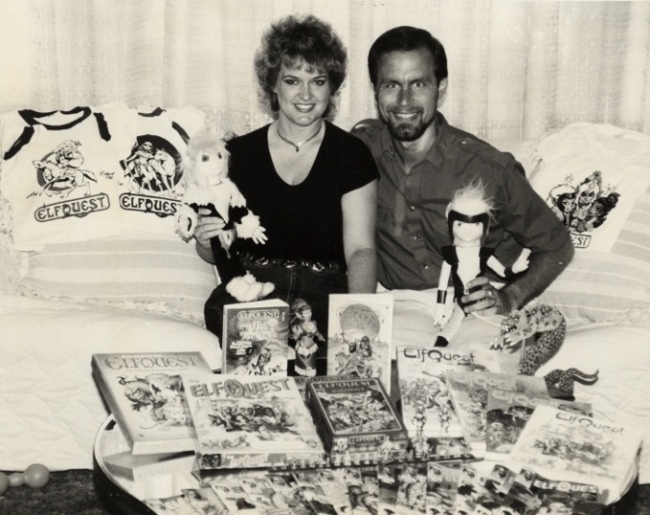
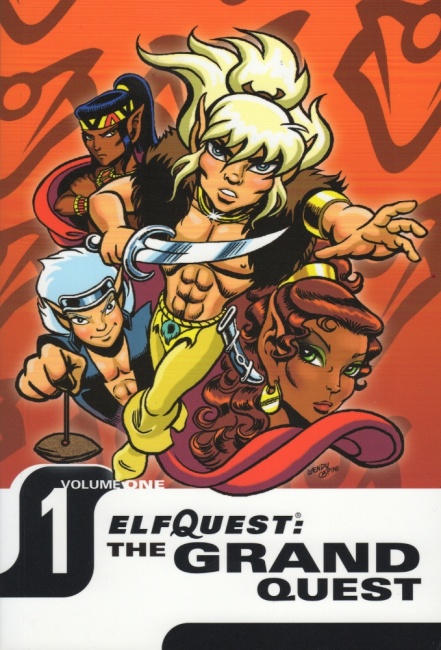
 View Gallery: 9 Images
View Gallery: 9 Images 